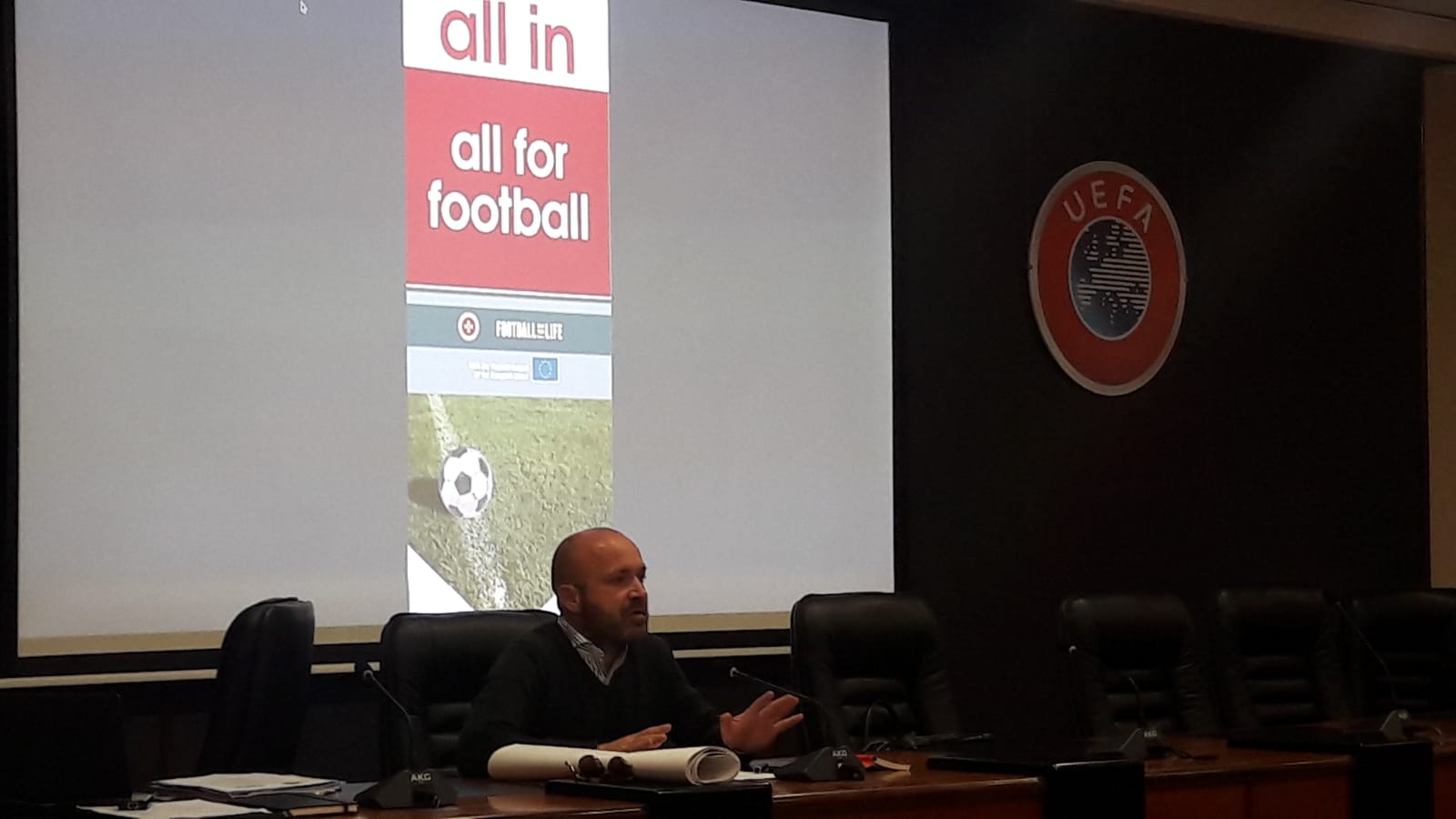When issuing licenses for teams to participate in European competitions, the Malta Football Association must ensure that football clubs comply with a number of standards issued by the Union of European Football Association (UEFA). One of these requirements is that clubs actively combat racism. David Abulafia, an English historian, refers to the Mediterranean as “probably the most vigorous place of interaction between different societies on the face of this planet” which highlights the importance of such initiatives.
A 2017 study conducted by Johann Caruana questioned whether footballers experience racism in Malta. He found that “Malta is another Mediterranean country in which football racism is present”. He interviewed ten athletes, nine of whom confirmed this reality. One of the respondents claimed that racism in Maltese football is subtle and labelled it, “not a nice nothing”, while other respondents described it as being, “something disturbing”.
On 6 April Malta FA teamed up with us to conduct a session discussing racism in football with local football clubs. The session started with Peter Busuttil, representing Malta FA, giving an overview of the various initiatives and projects implemented by Malta FA, such as All In – All for Football. Peter also underlined how some of Malta FA’s previous initiatives have also been recognised by UEFA for best practice amongst all the other European football associations.
The most prominent football teams on the island were present. Their representatives came with a positive attitude showcasing their goodwill and genuine love for the sport. In fact, they participated wholeheartedly in the conversation showing that such opportunities to voice their opinions are sorely needed.
Although everyone recognised the fact that racism is present in Maltese football, they held that such an attitude is not coming from within the administration of the respective football teams. They commented that racism in football is simply a reflection of a wider sentiment present in today’s society.
The discussion then veered towards establishing a proper definition of racism and what practices should be prohibited with club premises and activities. Some argued that jokes in the locker-rooms should not be considered racist as they are endemic to every team and necessary in order to have a united group of players.
Our Director (Neil), acting as discussion facilitator, recognised such dynamics whilst explaining typical minority/majority power dynamics, cautioning that a player might choose not to show his true emotions in order to avoid being alienated from the group. Most representatives agreed with this point and highlighted the fact that it should be the manager’s responsibility to make sure that players respect each other.
Another interesting point was raised by a representative of the Maltese Youth FA. She pointed out that there are a number of conditions which a young player must satisfy before being allowed to participate in a competitive match. This might result in excluding some youth players from taking part in the sport, particularly young people from disadvantaged contexts such as refugees and migrants.
During the session we learnt that, in Malta, we also have a Match Observer role with a number of responsibilities. One of these is to note and report any racial discrimination or abuse occurring during the match. The Match Observer present during our discussion stated that, whilst during last year’s season there were five reported incidents, this year there was only one reported incident. However, the Match Observer clearly expressed the fact that racism in Maltese stadiums is present, claiming that “ir-razziżmu huwa lampanti”.
It was clear throughout the sessions that both the Malta FA and local football clubs firmly oppose all forms of racism and recognise that it is in their interests for such attitudes to be abolished. Enforcement remained a disputed issue, with the clubs underlining the challenges posed by a system that requires them to monitor their fans’ behaviour during a football match. They also pointed out that identifying the perpetrators of racial chants is complicated since in most cases fans from different clubs sit in the same stands.
We are extremely happy to have collaborated with Malta FA on this important initiative.
It underlined the need for all stakeholders to continue this dialogue in order identify the best way to prevent and tackle racism in football.
Neil Falzon, aditus foundation Director
We look forward to maintaining this engagement with Malta FA, as we believe in the power of football to bring about social change and to foster refugee and migrant integration.


